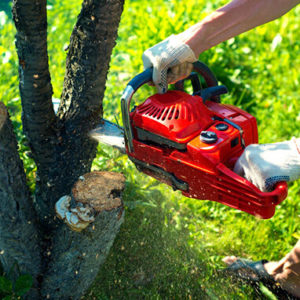Due to the fact that they can live for decades (or centuries in some cases), it's crucial to select the right tree for your landscape. Here's how to select the best trees for your zone and site.
When it comes to trees, a choice made in haste can lead to years of remorse. Take your time when selecting a tree to plant and select one that uses the best mix of qualities you will delight in. Use these pointers for finding just the ideal tree for you.
Why Plant a Tree?
Asking this concern will help you find out what sort of tree you 'd most like to plant. Understand that nearly any tree you choose will add worth to your house, amongst other advantages. Here's why you ought to invest time and money in planting trees:
- A fully grown tree can have an evaluated value of between $1,000 and $10,000, according to the Council of Tree and Landscape Appraisers. It takes years for trees to reach mature size, so plant now and delight in the trees' benefits up until it's time to proceed.
- Homeowners accomplished a 109 percent return on landscaping dollars invested, higher than any other house improvement, according to a Michigan University research study. Trees especially increase the residential or commercial property value of your home by 15 to 20 percent.
- Strategically positioned trees produce shade and assist in saving as much as 56 percent on annual air-conditioning expenses. Trees such as evergreens, put appropriately around your home, can reduce the requirement for heating by 20 to 50 percent in winter.
- Trees increase curb appeal. Purchasers are willing to invest 3 to 7 percent more on houses with sufficient trees instead of couple of or no trees. The existence of street trees may likewise minimize time on the market by approximately 1.7 days.
- Trees also clean the air we breathe, reduce air pollution, assistance wildlife, sluggish stormwater runoff, conserve rainwater, buffer noise pollution, and bolster individuals's health.

What to Consider When Selecting Trees
Every type of cultivated tree has possessions that suit it for some landscape use. Each likewise has particular requirements important to its survival in the backyard. Some are more cold-hardy than others, so examine their zone ranking for hardiness. Many do best in rich, wet, woodsy soil that's on the acidic side. Others choose more alkaline soil that tends to be dry since it's not as abundant in moisture-holding raw material. Some trees, like overload red maples and bald cypress, can deal with truly damp soil.
A tree's development rate likewise may have an impact on your option. If it's crucial to develop shade or have flowers relatively rapidly, select a fast-growing tree. On any site, put smaller trees near the house and taller ones farther out in the lawn or near its edge.
Trees and shrubs are either deciduous or evergreen. Deciduous trees lose their leaves in the fall and are bare all winter season, though the leaves often give a final show read of beautiful colors before they drop. Evergreen trees and shrubs retain their foliage year-round. Some, such as southern magnolia, feature broad leaves. Others, such as pines, have needlelike foliage.
Specific trees are more tolerant of common urban conditions, such as atmospheric toxins from market and cars, compressed soil, poor drain, night lighting, and salt spray from snow plows. Typically, city trees have much shorter lifespans than their rural or country equivalents. Those that do best are Norway maple, oak, Washington hawthorn, ginkgo, honey locust, sweet gum, crabapple, linden, and zelkova.
Trees also have their liabilities. Some have thorns that make them unsuitable for homes with children. Others are weedy. Some are unpleasant; sycamores and family members of the London plane tree drip fuzzy balls, bark, and twigs all over the place. The increased balls from sweet gum trees and the runaway roots of willows present challenges. If you choose the best place for some of these less-desirable ranges, you often can neglect their faults and enjoy their virtues rather.
Tree Service Experts Fort Worth is a family-owned tree service with over 25-years of experience caring for the natural landscape of communities in Fort Worth, TX. Our goal is to provide exceptional tree service to all residential and commercial clients looking to maintain or improve the natural surroundings of their homes and businesses. We always use the SAFEST tree removal methods for your property's safety, to ensure efficiency, and to promote safety! We strive to save every tree we can, but sometimes tree removal is necessary.
Contact:
Tree More Info Service Experts Fort Worth
4851 South Fwy
Fort Worth, TX 76115
682-509-0116
https://www.thelocaltreeexpert.com/tx/fort-worth/